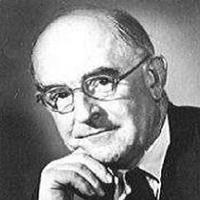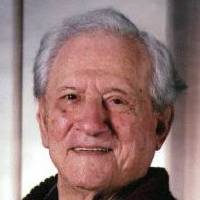 SPONSORED: Ensemble. Unjustly Neglected - In this specially extended feature, Armstrong Gibbs' re-discovered 'Passion according to St Luke' impresses Roderic Dunnett.
SPONSORED: Ensemble. Unjustly Neglected - In this specially extended feature, Armstrong Gibbs' re-discovered 'Passion according to St Luke' impresses Roderic Dunnett.
All sponsored features >>
- Edward Grieg
- Signum Records Ltd
- Lassus
- Rolande de Lassus
- BPSE Chamber Music Competition
- Natalya Romaniw
- Bulgan
- Luis Buñuel
 DISCUSSION: What is a work? John Dante Prevedini leads a discussion about The performing artist as co-creator, including contributions from Halida Dinova, Yekaterina Lebedeva, Béla Hartmann, David Arditti and Stephen Francis Vasta.
DISCUSSION: What is a work? John Dante Prevedini leads a discussion about The performing artist as co-creator, including contributions from Halida Dinova, Yekaterina Lebedeva, Béla Hartmann, David Arditti and Stephen Francis Vasta.
Leo Ornstein
'... work of vehement, unruly rhythm, compounded of dense chord clusters ... and brutal accents. Complex rhythms and gigantic crashing chords traverse the whole range of the piano. This remains a work for a great virtuoso able to imbue it with a burning, ferocious energy.' - Gordon Rumson, writing in 2002 about Leo Ornstein's Wild Men's Dance
Russian-born composer and pianist Leo Ornstein died peacefully on 24 February 2002 in Green Bay, Wisconsin, USA. He was born in Kremenchuk (now in central Ukraine) in December of either 1892, 1893 or 1895, meaning that he lived to between 106 and 109 years old. Some official documents state his date of birth as 11 December 1895.

Ornstein was recognized as a piano prodigy at an early age. He studied at the St Petersburg Conservatory under Alexander Glazounov but in 1906 was forced to flee with his family to America where he studied at what would one day become the Juilliard School. He started giving concerts in 1911 and within a few years achieved notoriety, not only as a gifted pianist performing works of Debussy, Ravel, Scriabin, Schoenberg, and Bartók for the first time in the US, but also through performances of his own radical 'futurist' compositions which created a furore. A biography and analysis of his work was written by Frederick H Martens when he was still in his twenties.
He was internationally known as a virtuoso pianist, and as a composer he was ranked with Stravinsky and Schoenberg. In the late 1920s, however, at the height of a successful concert career, he abruptly ceased performing. A few years later, together with his wife Pauline Mallet-Prevost, he formed a music school in Philadelphia where he taught until retiring in the mid 1950s. After that he devoted his time entirely to composing. His final work, an eighth Piano Sonata, was composed in 1990 when he was in his late nineties, making him the oldest active composer at the time. This sonata and works from his early years were performed by Marc-André Hamelin on 26 March 2002 at Columbia's Miller theater.
Although best known for a collection of radical early works, throughout his life he wrote in diverse styles. Such stylistic eclecticism confounded his listeners which, in turn, may explain why he chose to retire from the concert stage in order to follow his muse away from public pressure and scrutiny.
Having thus shunned the music world it is not surprising that the music world quickly began to ignore him, and as time passed most people forgot about him altogether. Then, in the 1970s, along with a revival of interest in American music of the early part of the century, he was 'rediscovered' and since then a dozen or more records have been produced and many more works have been published. In 1975 he received the Marjorie Peabody Waite Award from the National Academy of Arts and Letters and The National Institute of Arts and Letters. His music continues to be performed and recorded both in the US and abroad, and a biography, Leo Ornstein - Modernist Dilemmas, Personal Choices, by musicologists Michael Broyles and Denise Von Glahn, was published in 2007. Ornstein's manuscripts are held at the Yale Music Library; much of his music has been edited and published by his son under the imprimatur of Poon Hill Press.
He was survived by his daughter Edith Valentine of De Pere, Wisconsin, his son, Severo Ornstein of Woodside, California, five grandchildren, and four great-grandchildren.
A selection of articles about Leo Ornstein
Resounding Echoes by Robert McCarney - Towards the flame
Ensemble. Informative and Exhilarating - Chamber and instrumental music from China and elsewhere, heard by Maria Nockin
MV3, with Gordon Rumson and Keith Bramich - the first of Music and Vision's monthly visits to the world of online music
A composer across the century - Gordon Rumson writes about Leo Ornstein, a composer about to celebrate his 105(?)th birthday

